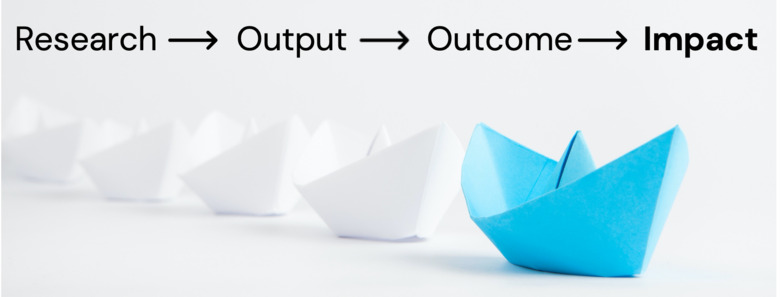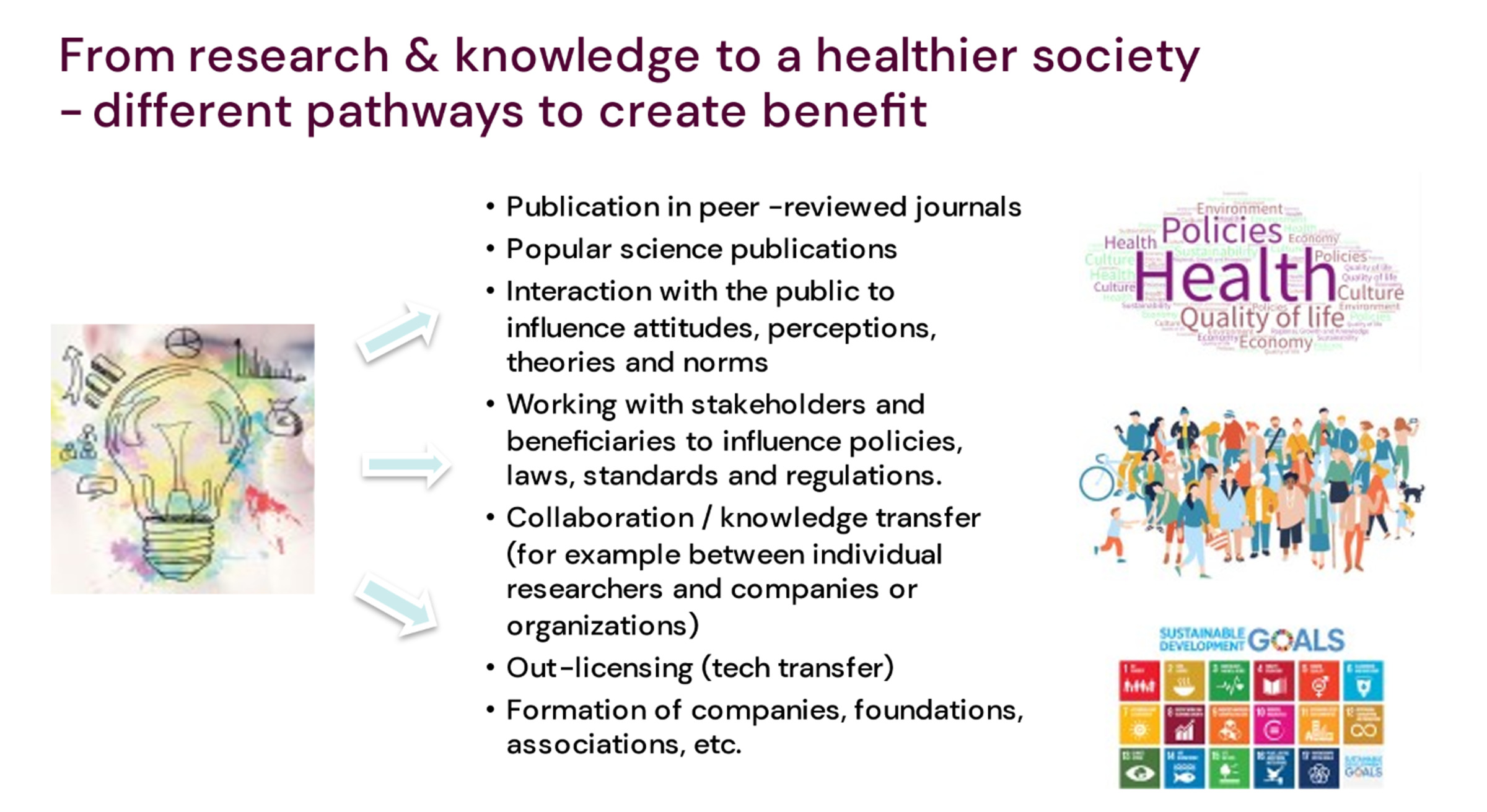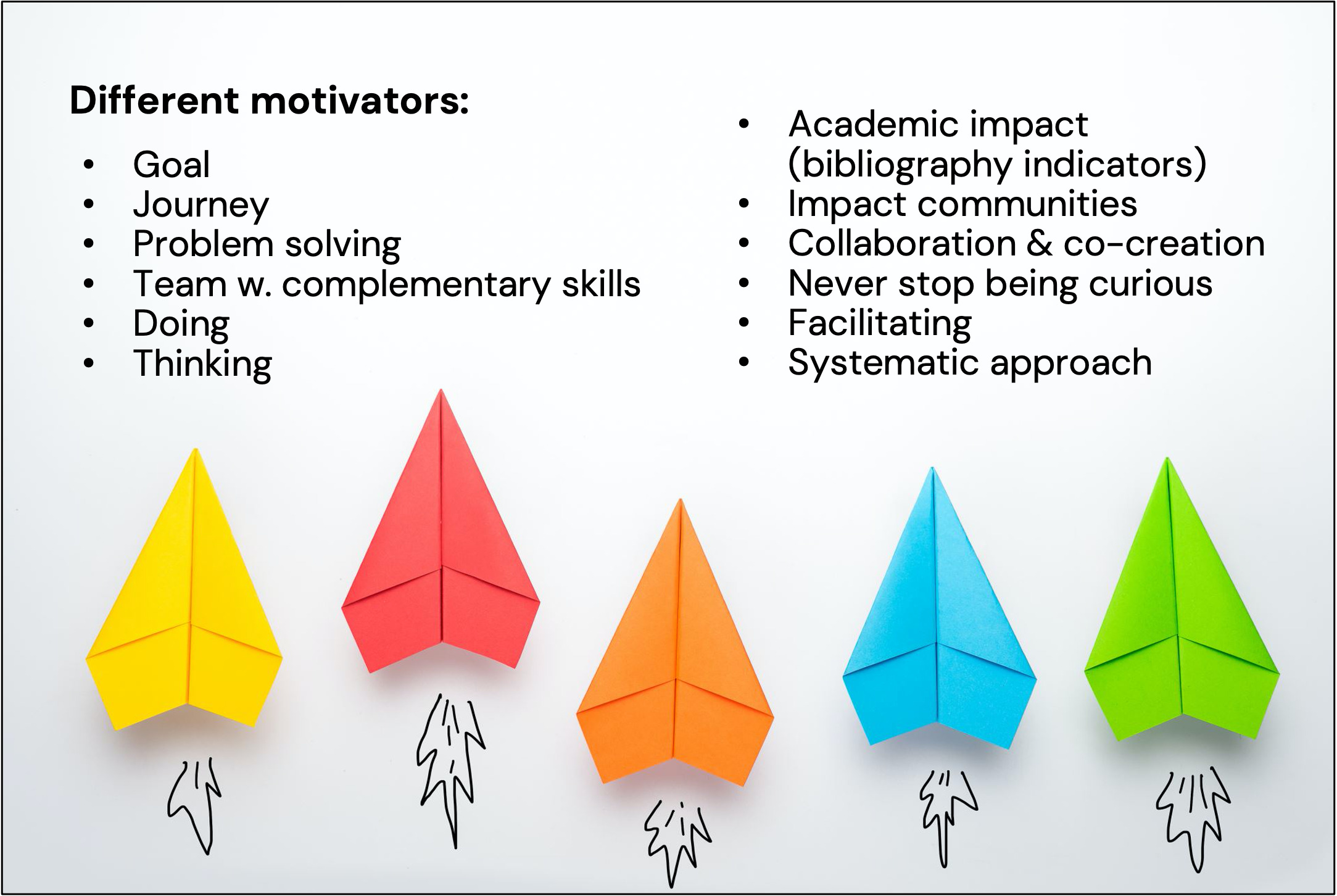A short guide to impact
What do we mean by impact? What do funders mean when they ask for ‘impact’ in their grant applications? Impact can be defined as an effect, a change or a benefit. Impact from academic research and knowledge includes societal, environmental, cultural or economic benefits.

Researchers are usually trained to do their research and publish their results, and it is important to measure the spread of their knowledge. However, both within academia and beyond, there is a rising interest in impact in terms of creating a positive benefit to the economy, society, culture, public policy, health services and quality of life.
Funders perspectives on impact
Grant funders increasingly require assurances that their financing is used in a wise and valuable way to make a difference for society. Nowadays funders often ask for a clear description of the expected impact created from the research. Such descriptions are often used as an evaluation criterion. It is also important to be aware that research reviewers and funders use different variations of defining impact.
How different funders define impact
Horizon Europe describes impact in glossary of terms as wider long-term effects on society (including the environment), the economy and science, enabled by the outcomes of R&I investments (long term). Several parts of Horizon Europe require that expected impact is defined in advance. Therefore, successful applications must clearly describe the steps towards impact.
For calls in pillar II describing impact is important and refers to the specific contribution of the project to the work programme expected impacts described in the destination. Impacts generally occur sometime after the end of the project (~ 10 years). Also other calls, e.g. Pathfinder and Marie Skłodowska-Curie Actions (MSCA) expect potential impact to be clearly described.
In the UK Research Excellence Framework, (REF 2021) impact is defined as the effect on, change or benefit to the economy, society, culture, public policy or services, health, the environment or quality of life, beyond academia.
The Swedish Research Council (VR) conceives impact in terms of significance and scientific novelty and is interested in knowing “how the project moves forward or innovates the current research frontier”.
- What are the specific needs that triggered the project?
- How will the beneficiaries be involved during the project?
- What are the expected results?
- What steps and activities will be performed to take the research results further to the stakeholders/beneficiaries?
- How will the results be disseminated and communicated?
- What positive change do you expect to see within the target group(s) if knowledge and project results are disseminated and applied successfully?
- What is the ultimate impact at a societal level?

Here's why impact matters
- Increasing your knowledge and understanding of impact as a concept will increase the likelihood of getting funding for your research, and associated activities.
- By exploring the steps in the “Research to impact journey” you may be better able to identify additional funding alternatives, potential partnerships, and business opportunities for example.
- Communicating the value and impact of your work/research to stakeholders, end-users and others will help to build trust and confidence and further enhance yours and KI reputation.
Pathways to impact
There are many ways to create impact from research & knowledge for society. These pathways include a wide variety of different activities and logical steps towards achieving expected impacts over time, and beyond the duration of a project.

Addressing impact in research process with team
Everyone has different motivators. What motivates you, your team and collaborators?
The pathway will require many different skills. Therefore, one key to success is to build on strengths and capabilities, maintain focus, but also include flexibility as the project develops and may change direction.
Also, it is highly recommended to embrace a broad way of thinking throughout the project – who might have an interest? Or value the new knowledge created? Who else might also benefit?


Advice and lessons learned
- Be proactive – start with the end in mind
- Engage the stakeholders and end-users
- Build partnerships and collaborate when appropriate
- Remain open minded
- Be aware of intellectual property – what to share and not to share? What to protect and what to make public?
- Keep eyes open for serendipity opportunities and spin offs
- Consider cross disciplinary knowledge exchange
- Review and evaluate regularly
- Share your knowledge and results through popular science communication, interaction and collaboration with the public, decision-makers and other stakeholders in order to influence attitudes, norms and policies
- Make knowledge useful by packaging into products, services, methods or tools which can be implemented and scaled by sharing for free, setting up licensing agreements, collaborations, creating your own company, foundation or association.
